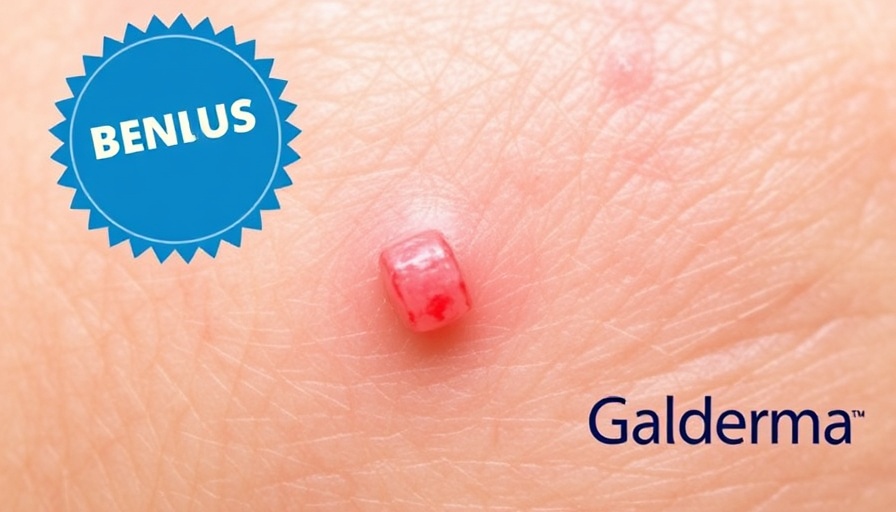
Understanding Itch and Atopic Dermatitis
Atopic dermatitis, commonly known as eczema, is more than just a skin condition; it’s a challenge that affects millions, often leading to persistent itchiness and discomfort. But what exactly causes this itch? For many, this inflammatory condition results in dry, red, and itchy skin, which can significantly impact the quality of life. Understanding the underlying mechanisms is crucial for those affected to seek appropriate treatments.
The Vicious Cycle of Itching
The itch-scratch cycle is a familiar torment for individuals with atopic dermatitis. Scratching can temporarily relieve itchiness but often leads to further skin irritation, inflammation, and more itching—a frustrating cycle. Research has highlighted that the sensory pathways involved in the perception of itch can become overactive in these individuals, enhancing the urge to scratch. Addressing this itch effectively requires both a deep understanding of the skin and a compassionate approach to treatment.
Myth Busting: Common Misconceptions About Atopic Dermatitis
One common myth is that atopic dermatitis only affects children. However, research indicates that many adults continue to grapple with this condition long into their lives. Furthermore, there's a misconception that poor hygiene causes eczema. In reality, it's often triggered by a combination of factors including environmental allergens, stress, and genetic predispositions. Recognizing these myths is the first step toward better management.
Effective Treatment Approaches Based on Evidence
For adults aged 25-45, understanding evidence-based treatments for atopic dermatitis is essential. Topical corticosteroids are frequently prescribed to reduce inflammation and manage symptoms. However, new therapies, including biologics, have also emerged. These targeted medications aim to modify the immune response associated with the condition, offering a promising alternative for those whose symptoms are refractory to conventional treatments.
Feelings of Isolation: The Social Impact
The emotional toll of living with eczema can be profound. Individuals may feel embarrassed or self-conscious about their appearance, which can lead to social withdrawal. It's crucial for those affected to connect with support groups and communities that share similar experiences. Engaging in these conversations can foster a supportive environment where individuals can share tips and emotional support, creating resilience against the psychological impact of the condition.
Looking Ahead: Future Research Directions
As science continues to evolve, so does the understanding of atopic dermatitis. Ongoing research is exploring the microbiome's role in skin health, aiming to develop treatments that not only alleviate symptoms but also restore the skin's natural function. Insights from these studies suggest that future therapies may combine skincare routines with gut health, offering a multi-faceted approach to eczema management.
Empowering Yourself Through Knowledge and Resources
In the digital age, a wealth of resources is available for managing atopic dermatitis. This includes educational websites, webinars featuring dermatologists, and apps that track symptoms and triggers. By empowering themselves with knowledge, individuals can take a proactive role in their skincare routines, making informed decisions that align with their personal and medical needs. Don't hesitate to explore these resources and find what works best for you.
Taking Action: What You Can Do Today
If you're struggling with atopic dermatitis, consider scheduling an appointment with a dermatologist who specializes in this condition. It's vital to have a professional assess your situation and help craft a tailored treatment plan. With the right support and resources, managing atopic dermatitis can become a less daunting task. Reach out to your local dermatology clinic or an online consultation service to start your journey toward healthier skin.
 Add Row
Add Row  Add
Add 






Write A Comment